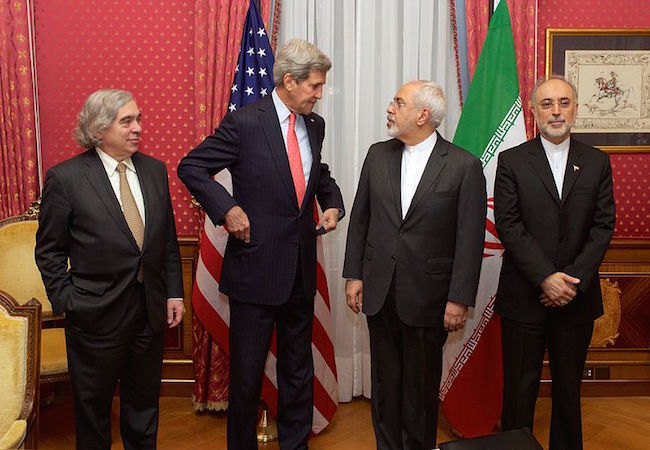
By Asma Khalid
Nuclear proliferation pessimists and arms control experts’ aims to limit the nuclear weapons states to the possible lowest number. For this purpose, major Powers and traditionally pessimistic has created a multiplicity of legal tools aimed at preventing nuclear WMD including legally binding treaties to recommendations to voluntary agreements and regional committees. There is abundance of individual safety initiatives and dedicated groups aiming towards the prevention of nuclear threats including the NPT. NPT being the shadow of the NPR is working towards gaining universality. The global Non-proliferation regime is under stress due to the recent developments in global nuclear order. The unilateral withdrawal of US from the JCPOA, the nuclearization of North Korea as well as US and Russia’s aspirations for strategic force modernization has posed serious implications on the global efforts of arms control and nuclear on-proliferation regime.
Two events in recent years are likely to have far reaching implications: First, President Trump’s withdrawal from the JCPOA and decision to impose sanctions on Iran; Second, withdrawalof North Korea from NPT and its successful nuclear test.
Iran’s nuclear deal or JCPOA was negotiated and inked in July 2015. The deal was signed between five permanent members of UNSC and Germany (P5+1) and Islamic Republic of Iran. Nuclear deal was viewed as hallmark agreement and marked as “win-win” situation for all the concerned parties and global non-proliferation efforts. Under the JCPOA, it was ensured that Iran’s nuclear program will be peaceful and for civilian purposes. The reports by IAEA have indicated that after the implementation of nuclear deal Iran has not engaged in any prohibited activity and there is no question mark on Iran’s compliance with the nuclear deal. The full implementation of JCPOA was considered as positive addition to the efforts of non-proliferation in order to ensure international peace and security. However, President Donald Trump unilaterally withdrew from the deal in May 2018 and it is considered as major setback to global Non-proliferation efforts. Because due to withdrawal from the JCPOA, achievements of the Iran deal, i.e. two-thirds dismantling of centrifuges, 97 per cent destruction of uranium stocks, intrusive IAEA monitoring and Tehran’s commitment to not acquire nuclear weapons has been lost.
Other JCPOA signatories, i.e. Britain, Germany, France, China and Russia have unanimously opposed the US decision. The unilateral withdrawal of US from the nuclear deal has not only created the frictions between global powers but it has also severely undermined the credibility of major powers role in non-proliferation efforts. In Middle East; Israel’s support to President Trump’s decision shows the monopoly of Israel in the region. According to the nuclear security analysts, Iran may also withdraw from the NPTunder the article X of the treaty. According to article X of NPT, states have legitimate right to withdraw from the treaty if state feels that its“supreme interests” and “sovereignty” are in jeopardy. Additionally, withdrawal of Iran from NPT (if happened) is viewed as a major setback to the international dialogue and efforts of global non-proliferation.
In the Case of North Korea, coercive diplomacy of US has faced serious blow. In 2017, North Korea detonated the hydrogen bomb that is capable to carry Inter-Continental Ballistic Missile (ICBM). President Trump wants the North Korea to convert its nuclear program into civilian use program but Kim Jong-un is reluctant to end it nuclear and missile program as nuclear weapon capability is a tool to ensure sovereign defense of state. On April 27, 2018, a summit meeting took place between two Korean leaders and atthe end of the summit meeting; the denuclearization of Korean peninsula was announced by the two Korean leaders. Though North Korea has started working on its denuclearization commitments and its step to close the nuclear reactor situated at Yongbyon nuclear complex is significant breakthrough. But the secret reports have revealed that North Korea had covertly constructed another facility to produce highly enriched uranium. Thus closing one nuclear complex may slow down the North Korea’s capability to manufacture nuclear weapon but nuclear analysts are of the view that it will not completely suspend the production of weapon grade uranium. The review of current US policies and US-Russia’s aim to modernize nuclear weapons demonstrates that nuclear Non-Proliferation treaty has failed to gain attention of even those states that are enjoying the security under nuclear security umbrella. In this scenario, expecting the complete denuclearization of North Korea is unrealistic approach.
The Iran’s and North Korea’s case demonstrates that, international structure being anarchic in nature is subject to manipulation by those in power. To attain political momentum and eventual universal acceptance of NPT agenda, it is imperative for NPT-NWS to move away from ambiguous discriminatory approaches and make lasting commitment towards reducing the governance gap and achieve nuclear disarmament under the article VI of the NPT instead of using NPT as a tool to serve own objectives.
Asma Khalid is currently working as Research Associate at Strategic Vision Institute in Islamabad, Pakistan.




